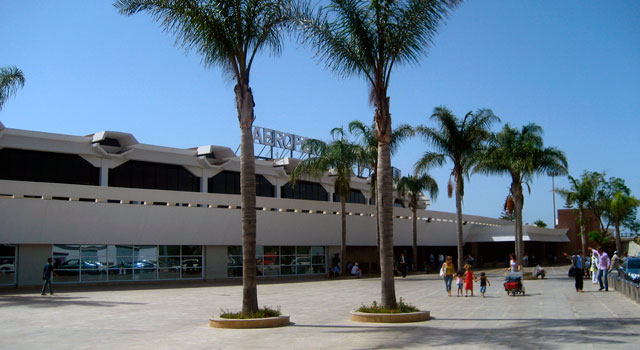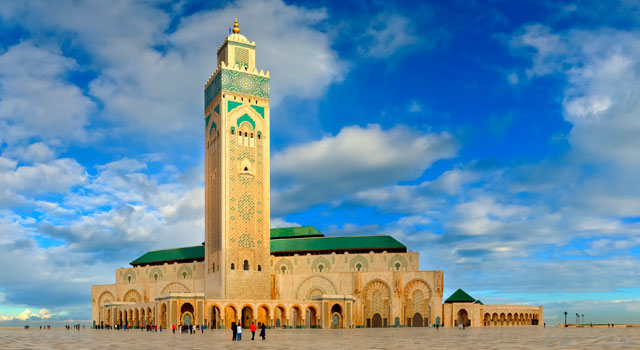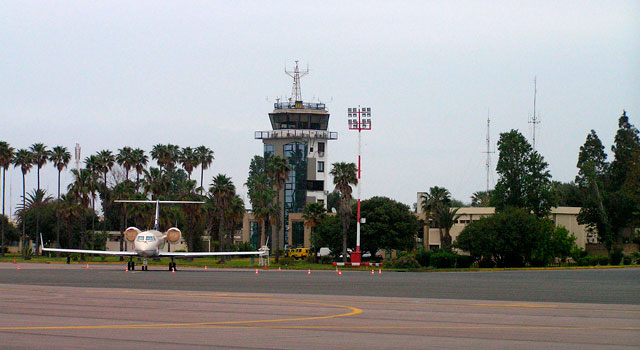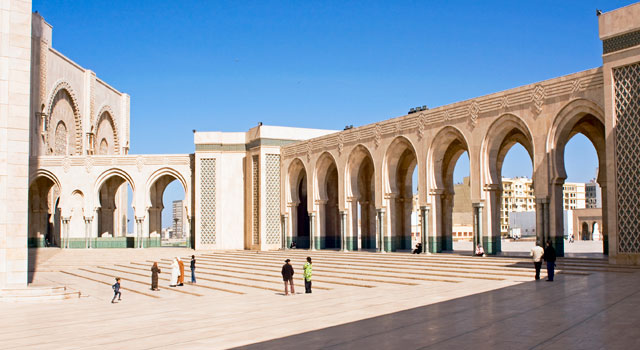Terminals +info
Casablanca Mohammed V International Airport has three passenger terminals:
Terminal 1, the newest and largest, with a capacity of 14 million passengers and modern facilities;
Terminal 2, serving international flights with a functional layout;
and Terminal 3, mainly dedicated to cargo operations, supporting the airport’s significant freight capacity
Reviews +info
On this website, you will find valuable tips and reviews about Casablanca Airport, designed to help you navigate your travel experience smoothly. These reviews can help you understand what to expect in terms of service quality, cleanliness, and overall passenger experience.
-Our Review of Casablanca Airport
-Pros and Cons of CMN Airport
-Mini-Guide of the Airport (2’ Guide)
-Other reviews
-Some Stats
Transport +info
See the transportation options to and from Casablanca Airport:
Train: Casablanca Airport is served by ONCF public transport company with a frequency of a train per hour. The station is located in the basement (arrivals) of Terminal 1.
Bus: There are no buses available at Casablanca Airport.
Taxi: The fare to Casablanca is approximately MAD 280 (USD 30.00).
Car Rental: Casablanca Airport is well equipped with car rental counters within its facilities.
Contact
Address:
Casa-Oasis,
Nouasseur, 8101
Casablanca
MOROCCO
Telephone:
+212 5225-39040
Call centre:
+212 080 1000 224 / 22 43 5858
Email:
a.lahkim@onda.ma
The Airport in Numbers
-The airport operates three passenger terminals and two cargo terminals to handle both travelers and freight efficiently.-It is served by around 50 regular airlines, connecting Casablanca to more than 96 destinations worldwide.
-In 2024, the airport managed 33% of all flights arriving at and departing from Morocco, handling over 3.9 million passengers from January to May alone.
-The airport’s capacity is designed for about 14 million passengers and 150,000 tons of air cargo per year.
-Casablanca Airport has more than 16 boarding gates across its terminals, supporting a high volume of simultaneous departures and arrivals.
-At peak, the airport has handled up to 10 million passengers in a single year, marking its highest annual record.
-Mohammed V International Airport is ranked as the 4th busiest airport in Africa, just behind major hubs in Cairo, Johannesburg, and Cape Town.
About Casablanca
Casablanca is Morocco’s largest city and its economic and industrial capital, strategically located on the Atlantic coast. The city is home to the country’s most important port, which plays a key role in both national and regional trade. Casablanca’s urban landscape reflects its rich history, blending influences from its Berber, Portuguese, and French colonial past. The French left a lasting mark on the city’s architecture, resulting in a unique mix of European Art Deco and traditional Moorish styles. Wide boulevards, grand squares, and elegant facades coexist with bustling markets and historic medinas.
One of Casablanca’s most iconic landmarks is the Hassan II Mosque, completed in 1993. This architectural masterpiece is one of the largest mosques in the world, with a minaret that soars 210 meters above the Atlantic, offering breathtaking views. The mosque is open to non-Muslim visitors on guided tours, allowing travelers to appreciate its intricate mosaics, marble floors, and impressive craftsmanship.
Other notable attractions include Mohammed V Square, the city’s administrative and cultural heart, surrounded by striking colonial-era buildings. The Habous Quarter, or New Medina, is another must-see, known for its traditional Moroccan architecture, artisan shops, and lively atmosphere. The Marche Central market offers an authentic taste of daily life, where visitors can sample fresh seafood and local produce.
Casablanca’s cosmopolitan spirit is evident in its vibrant nightlife, trendy cafes, and renowned restaurants. The famous Rick’s Café, inspired by the classic film “Casablanca,” recreates the movie’s ambiance and is a popular spot for both tourists and locals. The city’s cuisine is a highlight, featuring delicious Moroccan dishes such as tagine, couscous, and fresh Atlantic seafood.
Beyond the city, the surrounding region offers beautiful Atlantic beaches and easy access to historic towns like El Jadida and Rabat. Whether exploring its architectural gems, enjoying its culinary delights, or relaxing by the ocean, Casablanca and its surroundings provide a dynamic and memorable Moroccan experience.



